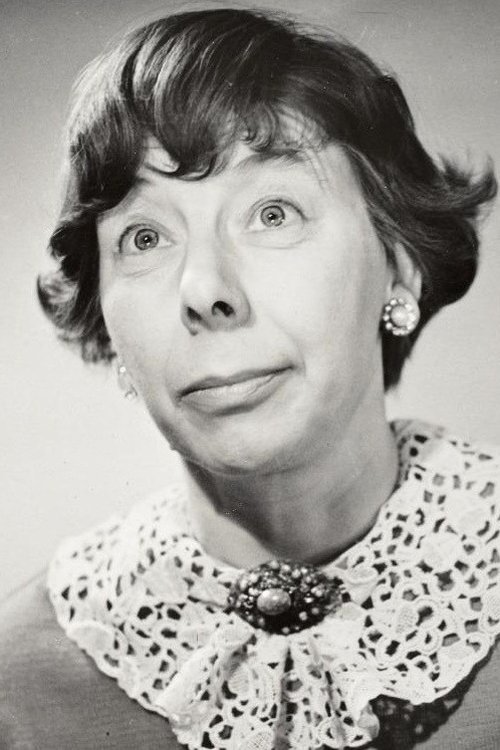Leida Rammo
Tallinn, Estonia
Born: 1924-04-18Died: 2020-07-23
Biography:
Leida Rammo (April 18, 1924 – July 23, 2020) was an Estonian stage, radio, television, and film actress and theatre director whose career spanned over seven decades. Leida Rammo had an extensive film career, appearing in over thirty feature films. Her first significant film role was that of Lisete in the 1964 Grigori Kromanov and Jüri Müür-directed Tallinnfilm epic-drama Põrgupõhja uus Vanapagan, based on the 1939 novel of the same name by A. H. Tammsaare. Rammo, however, was initially displeased when she saw herself in film dailies and was overly-critical of her appearance and acting, but the following year accepted a smaller role in the Tallinnfilm drama Mäeküla piimamees, directed by former Estonian State Theatre Institute classmate Leida Laius, and adapted from the 1916 novel of the same name by Eduard Vilde. In 1967, she appeared as Klara Kukk in the popular Veljo Käsper-directed Tallinnfilm comedy Viini postmark and followed with the role of Hermiine in the 1968 Kaljo Kiisk-directed Tallinnfilm historic-thriller Hullumeelsus. Rammo worked steadily in films throughout the 1970s. Some notable performances of the era include the roles of Elve in the 1972 Kaljo Kiisk-directed drama Maaletulek, and as Laine in the 1972 Sulev Nõmmik-directed comedy television film Noor pensionär for Eesti Telefilm. In 1983, she appeared in the Kaljo Kiisk-directed Nipernaadi, an adaptation of August Gailit's 1928 novel Toomas Nipernaadi. In 1985, she appeared in the role of Anna on the Eesti Televisioon (ETV) series Rudolf ja Irma, based on the 1934 novel Elu ja armastus by A. H. Tammsaare. In 1988, she played the role of Marta Tooming in the Leida Laius-directed drama Varastatud kohtumine. Rammo continued to appear in films throughout the 1990s, albeit often in smaller roles. Some notable performances of the era include the 1992 Lembit Ulfsak-directed family-comedy film Lammas all paremas nurgas, the 1995 Andrew Grieve-directed English and Estonian language drama Kirjad idast, and the 1998 Rao Heidmets-directed family film Kallis härra Q, which was an adaptation of story of the same name by children's author Aino Pervik. Rammo's film roles continued into the 2000s and 2010s, with her last film role at age ninety-one in the 2015 Klaus Härö-directed Golden Globe Award-nominated historic-drama Vehkleja, starring Märt Avandi. In her eighties and nineties, Rammo also appeared in a number of small roles or guest roles on Estonian television in the late 2000s and 2010s: the Kanal 2 crime series Kelgukoerad in 2007, the TV3 comedy-crime series Kättemaksukontor in 2010, the TV3 comedy series Ment in 2012, and the TV3 comedy series Padjaklubi in 2014. Leida Rammo was married to journalist Avo Lorents, who died in 1986. The couple have one child; a daughter named Kai. She was a grandmother and great-grandmother. Rammo had been an outspoken atheist since she was a young girl. Rammo's eyesight diminished in her later years and she spent much of her time reading at the library for the blind. Her daughter often kept her company and read to her as well.
Credits
| Those Old Love-letters | Cleaner (uncredited) | 1992-06-06 |
| Postmark from Vienna | Klaara Kukk, Dispatcher | 1968-01-10 |
| Lamb in the Down Right Corner | Old Lady | 1992-12-18 |
| Vasha | Old Lady on the Tram | 2009-01-23 |
| Living Images | Baroness von Rosen | 2013-02-21 |
25 results
Rows per page
Page 1 of 5






